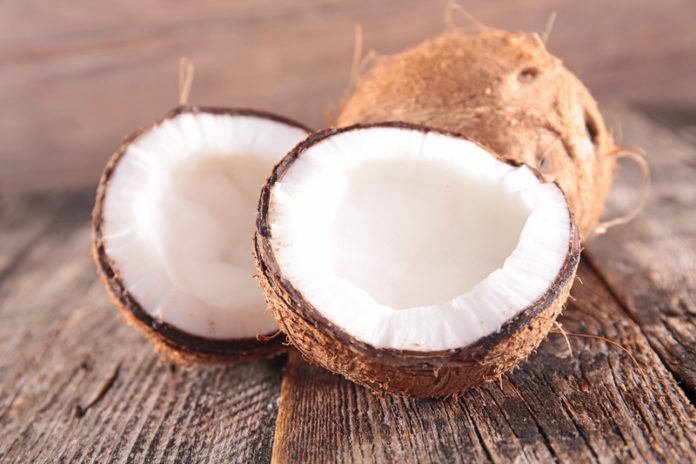
The United Coconut Associations of the Philippines (UCAP) said the country’s coconut industry has more than enough untapped capacity to meet the anticipated growth in demand for virgin coconut oil (VCO), which has shown to significantly reduce Covid-19 symptoms in tests.
The Department of Science and Technology (DOST) revealed recently that VCO significantly decreased symptoms in suspected and probable Covid-19 cases in as early as the second day of testing.
UCAP and VCO Producers and Traders Association of the Philippines are now encouraging government agencies like the Department of Health to support and promote Covid-19 natural alternative options.
“Coconut oils and the inherent medium-chain triglyceride (MCT) properties in it have long been recognized for their antiviral action,” UCAP Executive Director Yvonne Agustin said.
“Many who tested Covid-19 positive have recovered rapidly by incorporating coconut oil into their daily diet while those who are taking it as a supplement have seen their immunity strengthened,” she added.
VCO Philippines President Marco Reyes said VCO is an age old daily diet not only of Filipinos, but in other tropical countries in Asia, the Caribbean and Pacific Islands and Africa.
The Philippines still has more than enough supply of VCO even if there is an increase in demand during the pandemic.
UCAP and VCO Philippines data revealed that only 30 percent of the current capacity of 73,000 metric tons (MT) is being utilized. Local sales and export of VCO notched north of 20,000 MT in 2019.
The current local market consumes about 470 MT of VCO as of 2019 data. With renewed public interest in VCO, MCT and other coconut oils’ alternative health benefits, stakeholders are seeing a 20-percent growth in the demand by 2021.
The Philippine Coconut Authority, however, warned the public that unscrupulous manufacturers might ride on the current popularity of VCO and other coconut oils by producing bootleg or substandard products. The PCA is encouraging consumers to buy only Food and Drug Administration-approved VCO brands.
Agustin lauded the DOST’s Food and Nutrition Research Institute result as positive proof to these claims.
A total of 58 quarantined patients, divided into two groups, were chosen to participate in the 28-day trial conducted by the FNRI at the Sta. Rosa Community Hospital in Laguna.
DOST Secretary Fortunato dela Peña said they noted significant reduction in the C-Reactive Protein or level of inflammation among the patients given VCO in as early as the second day of tests.
Ateneo de Manila Science Professor Emeritus Toby Dayrit, who helped craft the VCO testing protocol, earlier clarified that VCO is not the “Covid-19 silver bullet.” He said it should be taken as a food supplement.
Dayrit explained that “VCO is a functional food, people should take it as a vitamin, not a drug, and while taking it, they should still follow the same safety protocols.”
REFERENCE:
